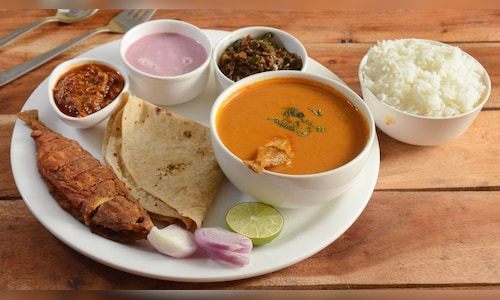Where a wholesome thali of dal, sabzi, roti, curd, and seasonal fruit once stood as the standard, it is now increasingly being replaced by protein bars, vitamin drinks, AI-generated meal plans, and nutrient supplements — reshaping the very foundation of how India eats.
News18 spoke to Dr Saurabh Arora, Managing Director of Auriga Research, who captured the essence of this transformation: the once-horizontal food pyramid has turned vertical. “Health became non-negotiable,” he observed, especially in the aftermath of the COVID-19 pandemic, which prompted many to start tracking their daily intake of protein, carbohydrates, vitamins, and minerals with the same intensity applied to work targets and personal goals.
Also read | Dubai will soon be home to world’s first AI-powered Chef Aiman at Woohoo
However, instead of returning to traditional meals and fresh produce, the focus of the many has shifted toward processed convenience — fortified breakfast cereals, lab-tested supplements, flavoured waters, and AI-personalised nutrition kits. What once came from kitchens is now coming from factories and nutrition labs.
Moreover, this marked shift has been fuelled by growing mistrust in the safety of fresh food, consumers are opting for the predictability of packaged goods. Concerns over adulterated milk, paneer, pesticide-laden vegetables, and meat treated with antibiotics have shaken public confidence. Viral videos and lab reports revealing contamination in everyday staples have left health-conscious shoppers second-guessing what ends up on their plate.
Also read | Sawan 2025: Kuttu Ki Puri to Sabudana Khichdi,10 easy-to-cook dishes you can break your fast with
To overcome any doubts, many Indians are turning to the certainty of barcoded, batch-numbered, and nutrient-labelled products that promise things like “20g protein, zero added sugar, and BPA-free packaging”.
Much like in Western diets, where ultra-processed foods dominate the plate, Indian food habits are beginning to fragment into functional nutrition. Nonetheless, the blame does not rest entirely with the consumer. A glaring disparity in food quality between export and domestic markets is contributing to the crisis of confidence.
Many of us have seen high quality mangoes being exported and local markets are stocked with inferior, mishandled produce. Weak supply chains, lack of cold storage, and poor handling leave urban shoppers with few trustworthy options.
Also read | Not just exotic mangoes, rose-scented litchis too are being exported to UAE and Qatar from India
In cities, where “farm-to-fork” often turns into “farm-to-rot”, consumers are increasingly leaning on algorithm-driven food recommendations. AI platforms now suggest meals based on an individual’s blood work, sleep cycles, and gut microbiome. Subscription kits and personalised vitamin packs have become substitutes for what was once the domain of family kitchens and traditional food wisdom.
Given these scenarios, one question remains, i.e. how do we reclaim trust in real food?
Many experts argue that a solution to this should begin at the systemic level. Strengthening logistics, investing in cold chains, enforcing rigorous quality control, and increasing transparency between farmers and consumers are essential. But is that enough?
While India’s nutritional future does not have to be bound by sachets and shrink wrap until trust is rebuilt from the ground up, from the soil to the plate, the country’s food pyramid will remain distorted.






